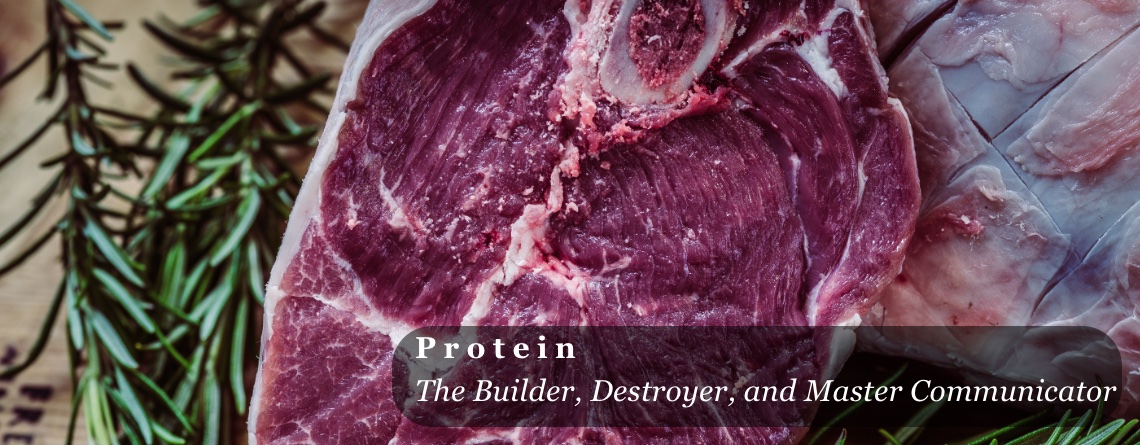
Protein is one of the two essential macronutrients in the body. This is because of it’s vital function in repair, energy contribution, hormone production, enzymes, and immune system function. If you’re interested in how much you should be taking in, then check out my article on that by clicking below!
Briefly, What is Protein?
Protein is made up of amino acids. Think of these as pearls on a necklace. The necklace would be the protein and the individual pearls are the amino acids. There are 20 amino acids and only 10 are required to get through your diet. How they are arranged and shaped determine their roles.
Function in Repair
No matter what your background, this is by far the job that gets the most attention. Repair and recovery is one of the few things we can actually see in the mirror and appreciate without looking under a microscope.
Muscle Hypertrophy
The most important aspect of building muscle is your ability to repair and recover between workouts. The advantage to taking steroids and other PED’s is decreasing your body’s repair time allowing for more work to be done over time.
So, what about us natural guys? Proteins are the building blocks of muscle. A house can not be built without the materials that make it up, right? Aside from being the actual material that makes up muscle, protein stimulates insulin (the most anabolic hormone in the body) and protein synthesis. Some amino acids accomplish this task better than others, such as Leucine. Eating foods higher in Leucine content like red meat and chicken should be considered.
Gut Lining (Leaky Gut)
Glutamine is a staple in any “leaky gut” protocol these days. Glutamine can help protect the gut lining by helping with mucus production and aid in the healing of the actual intestinal lining. Aside from glutamine there are three other amino acids that will help with leaky gut issues. Cysteine, glycine, and glutamate make up the most powerful antioxidant in the body, glutathione. [1]“Glutathione is suggested to play an important role in gut barrier function and prevention of intestinal inflammation.” Maintaining proper amounts of glutathione is imperative to overall health and gut integrity.
Function in Break Down
It is imperative for the body to be able to break down substances. For the purposes of this article we will be dividing enzymes into 2 very important functions.
Digestive Enzymes
Digestive enzymes are crucial to help break down food and nutrients before they are absorbed. Undigested food can irritate the intestinal lining and cause leaky gut phenomenon. If proteins aren’t fully broken down they can also trigger autoimmunity within the body. Taking enzymes might aid in digestion and thus absorption in the body.
Metabolic Enzymes
Enzymes responsible for cleaning out waste from cells and maintaining balance within the body are called metabolic enzymes. They aid in reducing reactions like recycling glutathione to improve oxidation status.
Function in Communication
Neurotransmitters
Scientists today still are unaware of how many neurotransmitters are working in the body. Preceded by amino acids, they are found in nerve tissues and within the gut to help communicate between organs and cells in the nervous system. These signals can be voluntary or involuntary and transportation occurs through nerve tissue.
Hormones
There is some overlap between neurotransmitters and hormones. The main differences are that neurotransmitters are very fast acting and hormones are slower. Because of this some hormone signals have the ability to last longer to accomplish a task. Hormones typically look to affect distant tissues, are transported in blood and are involuntary signals.
References
[1]Ampting, M. T., Schonewille, A. J., Vink, C., Brummer, R., Meer, R., & Bovee-Oudenhoven, I. M. (2009). Intestinal barrier function in response to abundant or depleted mucosal glutathione in Salmonella-infected rats. BMC Physiology, 9(1), 6. doi:10.1186/1472-6793-9-6
